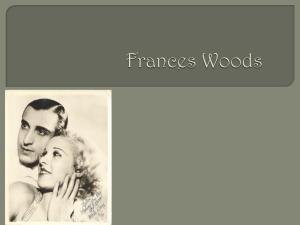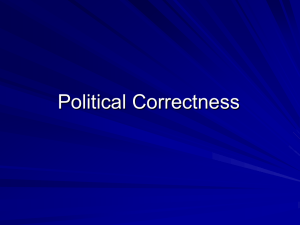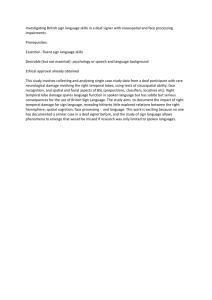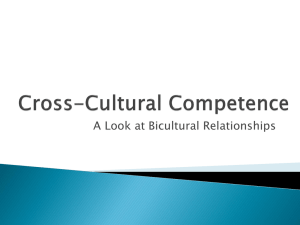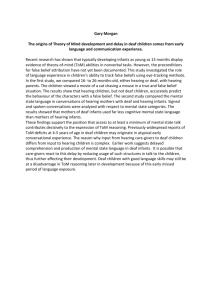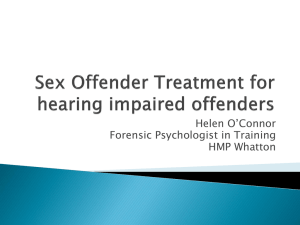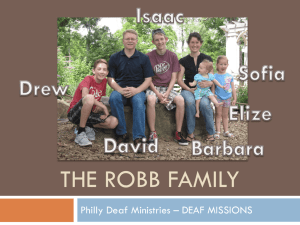HS-533 Culture Research Project
advertisement
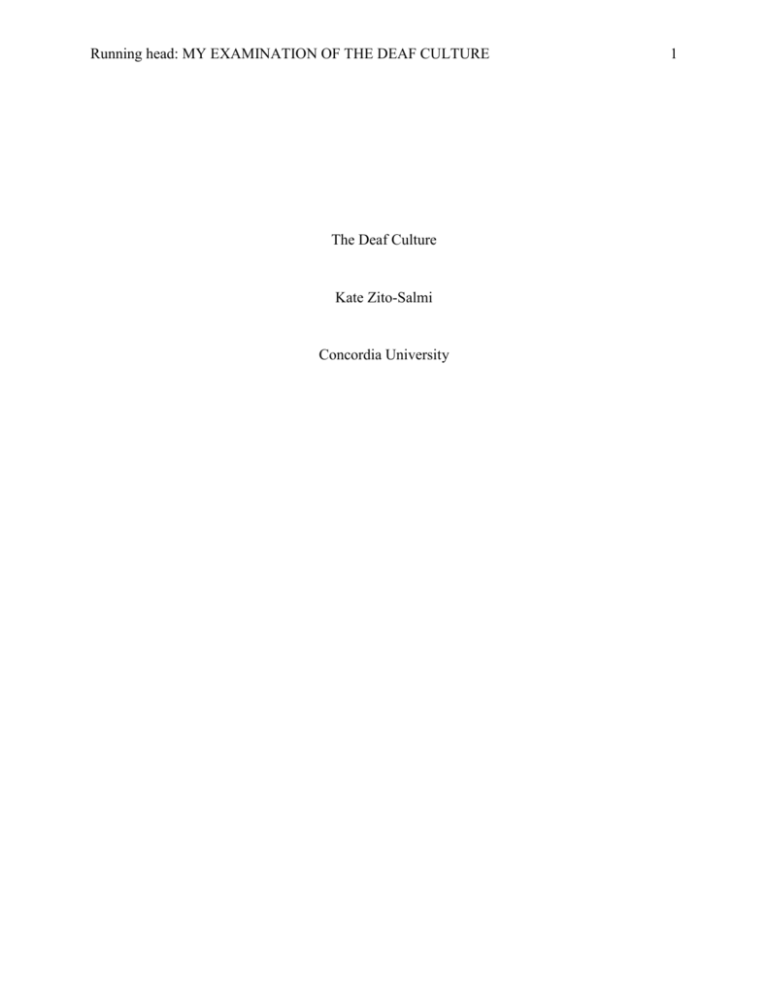
Running head: MY EXAMINATION OF THE DEAF CULTURE The Deaf Culture Kate Zito-Salmi Concordia University 1 MY EXAMINATION OF THE DEAF CULTURE 2 I want to explore the Deaf culture, because I believe this knowledge will help me become a more competent communicator in my future work with human services. In my seasonal position of four months, with Energy Assistance, I assisted two individuals that were Deaf. We were not prepared to communicate properly with individuals in the Deaf community. We had little understanding of this culture, and therefore we did not do a good of a job, creating a welcoming environment. I have a son, that lost most of his hearing in one ear from a Mastoid, so I know that even being hard of hearing can be difficult. It becomes much more complex with total loss of hearing. Jandt (2010), defines culture as, “Sum total of ways of living, including behavioral norms, linguistic expression, styles of communication, patterns of thinking, and beliefs and values of a group large enough to be self-sustaining transmitted over the course of generations” (p. G-4). The Deaf community meets this general definition of culture. It is understood in studying cultures, that unless you are part of a culture, you can never have the same perspective. In the Deaf community however, there is a deep link to each other, that has become global, the Deaf Nation. There are similarities in the Deaf culture and differences. There is the need for some to live with the hearing community, while others choose to live separate in their own communities. There is the Cochlear Implant controversy, which has been widely debated for and against. There are differences in language, and signing. There schools for the Deaf that separate children from the families, in the boarding school style. Individuals can enter the Deaf culture at different points, and most do not have parents that are Deaf, so they do not acquire their culture from their family (Ladd, 2003). MY EXAMINATION OF THE DEAF CULTURE 3 This is a culture that has risen from oppression in society and now demands the equality it deserves. It is a culture that thrives on its differences with the hearing world, and does not welcome sympathy. This is why I would like to discover the Deaf culture, and gain knowledge about this very interesting and relevant culture. The Deaf Culture intersects with other kinds of cultural identity such as; gender, education, ethnicity, race, poverty, sexual orientation and, many variables within the culture. There is also stereotyping of the Deaf community by the hearing community. These are variables in this culture to be compared and studied. MY EXAMINATION OF THE DEAF CULTURE References: Jandt, F. E. (2010). Armstrong, T. (6th Eds). An Introduction to Intercultural Communication. Sage Publications, Thousand Oaks, CA. Ladd, P. (2003). Understanding Deaf Culture: In Search of Deafhood. Clevedon, England: Multilingual Matters 4

